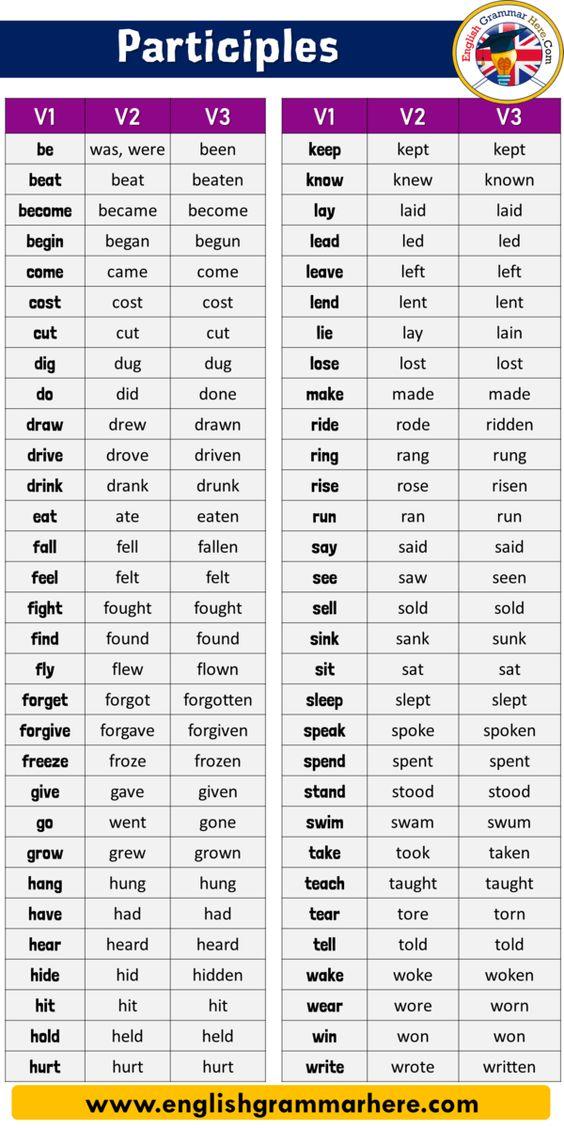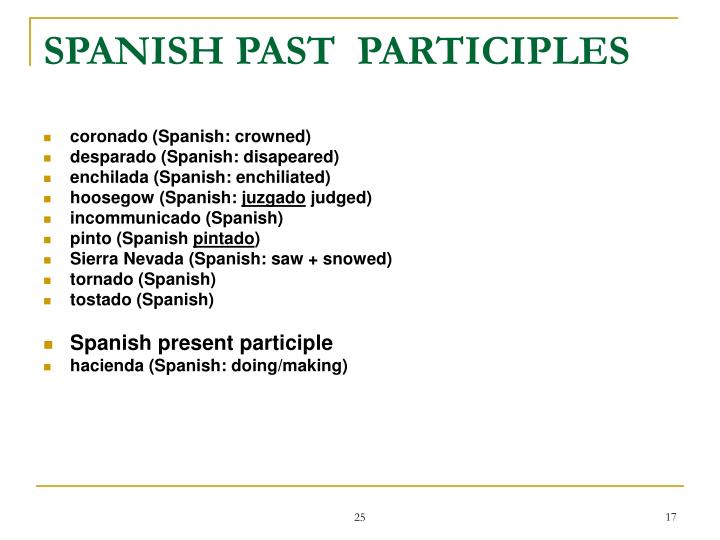

- #PAST PARTICIPLE SPANISH SENTENCE EXAMPLES MOVIE#
- #PAST PARTICIPLE SPANISH SENTENCE EXAMPLES WINDOWS#
Va a Haber: There is going to be/there will be In the future, everything will look like these mid-2000s stock images: habrá internet en todas partes! 5.

Will there be a lot of people at the party on Friday?.Habrá mucha gente en la fiesta del viernes?.In the future, there will be more and more electric cars.En el futuro, habrá cada vez más autos eléctricos.Last week, there was a concert in the park.La semana pasada, hubo un concierto en el parque.This year there were a lot of canceled flights.In 2005, there was a big hurricane in Louisiana.En el 2005, hubo un huracán muy grande en Louisiana.This conjugation of haber is called the “imperfect” - the simple past tense. Hubo and había are similar: they both mean “there was” or “there were”.īut hubo is used when we’re talking about something with a specific timeframe: an event that came and went. There weren’t many opportunities, so we movedģ.No había muchas oportunidades allá, así que nos mudamos.
#PAST PARTICIPLE SPANISH SENTENCE EXAMPLES MOVIE#
#PAST PARTICIPLE SPANISH SENTENCE EXAMPLES WINDOWS#
There are two windows in this room - one here and one there.Hay dos ventanas en esta habitación – una aquí, y una ahí.There is a famous cathedral in the center of Barcelona.Hay una catedral famosa en el centro de Barcelona.Each time you pronounce “hay” like “hay”, a farmer in Spain sheds a tear. You can use it anytime you want to talk about the presence or existence of one or more things. Hay looks like hay, but it’s pronounced “ay” - if you say the H, people will struggle to understand you. They’re easy to use because they don’t require any special conjugation once you know them, and help you express things in past, present and future. Haber to say “there is, there are, there were, there was, there will be”īelow are 5 of the most common uses of haber. Haber is an extremely useful verb in Spanish.Haber to say “there is, there are, there were, there was, there will be”.(construir, seguir, influir, distinguir, etc. Note: this rule does not apply, and no written accent is required for verbs ending in -uir. Note that for -er and -ir verbs, if the stem ends in a vowel, a written accent will be required. The store is opened every day by the owner. La tienda es abierta todos los días por el dueño. La casa fue construida por los carpinteros. Use this construction when an action is being described, and introduce the doer of the action with the word “por.”

The past participle can be combined with the verb “ser” to express the passive voice. Like other adjectives, they agree in gender and number with the nouns that they modify. Most past participles can be used as adjectives. Note that compound verbs based on the irregular verbs inherit the same irregularities. Resolver (to resolve) – resuelto (resolved) The following common verbs have irregular past participles: To form the past participle, simply drop the infinitive ending (-ar, -er, -ir) and add -ado (for -ar verbs) or -ido (for -er, -ir verbs). The past participle will be important in future lessons covering the perfect tenses. Subjunctive VIII: Actions not yet completed

Subjunctive III: Verbs that change orthographically Subjunctive II: Conjugating regular and stem-changing verbs


 0 kommentar(er)
0 kommentar(er)
